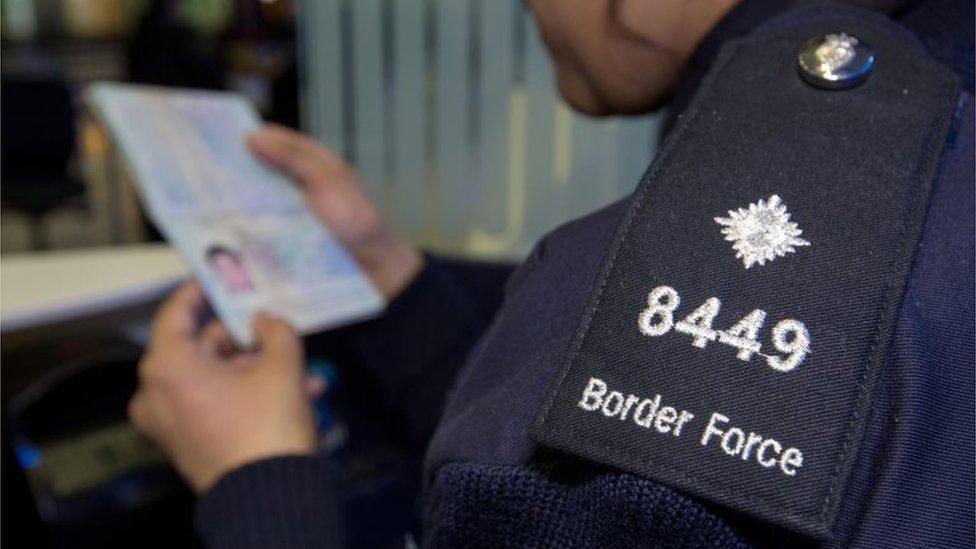Minister's warning over impact of digital travel permit
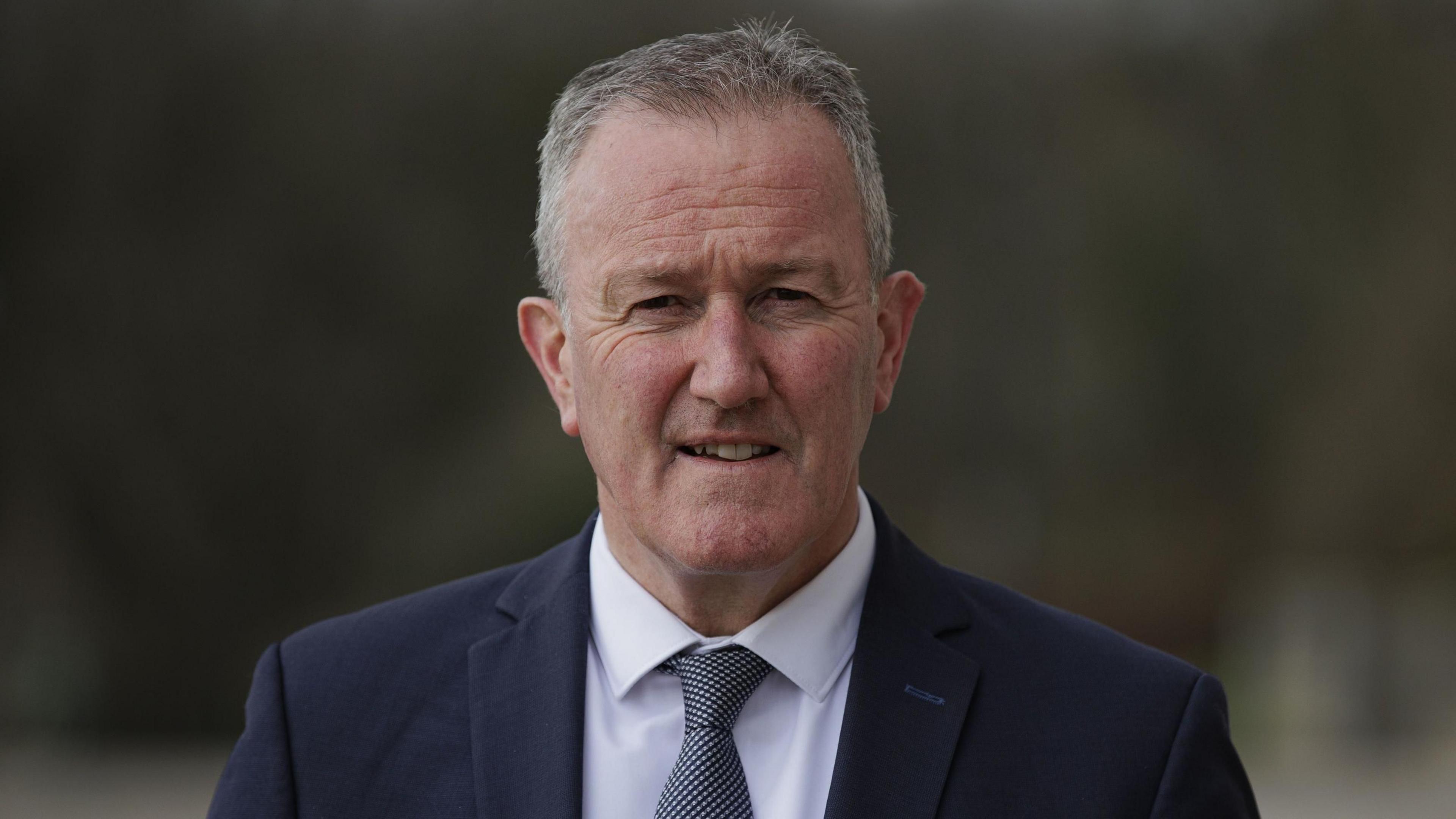
Conor Murphy is pressing Westminster to exempt Northern Ireland from the Electronic Travel Authorisation scheme
- Published
The Northern Ireland economy minister has warned the introduction of a digital travel permit will have a "devastating" impact on tourism.
Conor Murphy is pressing Westminster to exempt Northern Ireland from the Electronic Travel Authorisation (ETA) scheme.
From Wednesday, visitors from 48 more countries will need to apply for an ETA, which costs £10 per person, before travelling to the UK.
The Home Office in London says ETAs will provide for a more streamlined and secure immigration system.
But businesses in Northern Ireland say that 70% of international tourists arrive across the land border from the Republic of Ireland and could be put off making the journey.
Murphy said London should adopt a "pragmatic and flexible approach" and put in place an exemption for tourists who were crossing into Northern Ireland but not travelling on to Great Britain.
"At the very least a time-limited exemption for people visiting up to seven days would cover most of our international visitors," he said.
The minister said overseas tourists generated £210m for the Northern Ireland economy in 2023.
He pointed out that the island of Ireland was marketed internationally "as one entity" and that tourism was "a success story of the peace process" which should be protected.
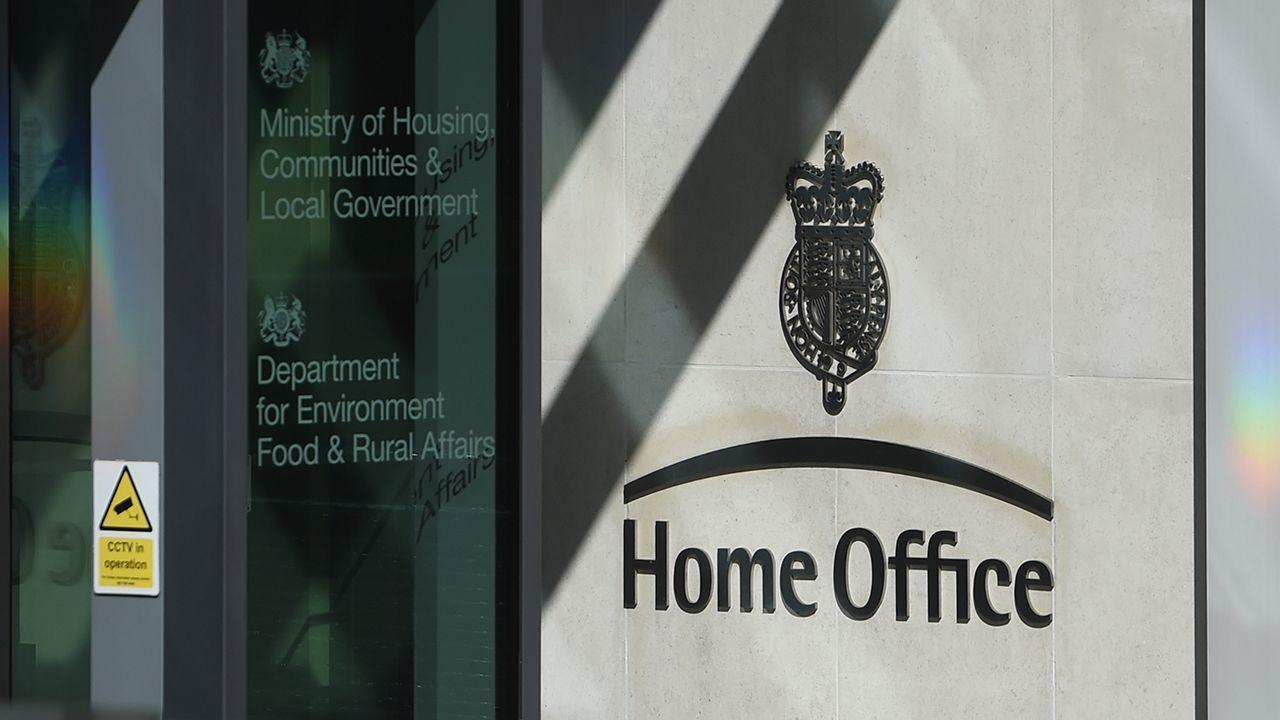
The Home Office in London says ETAs will provide for a more streamlined and secure immigration system
ETAs will eventually be needed for visitors from all countries who are not required to have a full UK visa, except the Republic of Ireland.
The digital permit is linked to passports, and tourists can apply for it online.
An ETA is valid for two years, and allows multiple stays of up to six months in the UK.
Travellers from Gulf states are already required to have an ETA.
Citizens of other non-EU countries, including the US and Australia, need ETAs from today.
The scheme will be rolled out to EU states from 2 April.
Potential added cost?
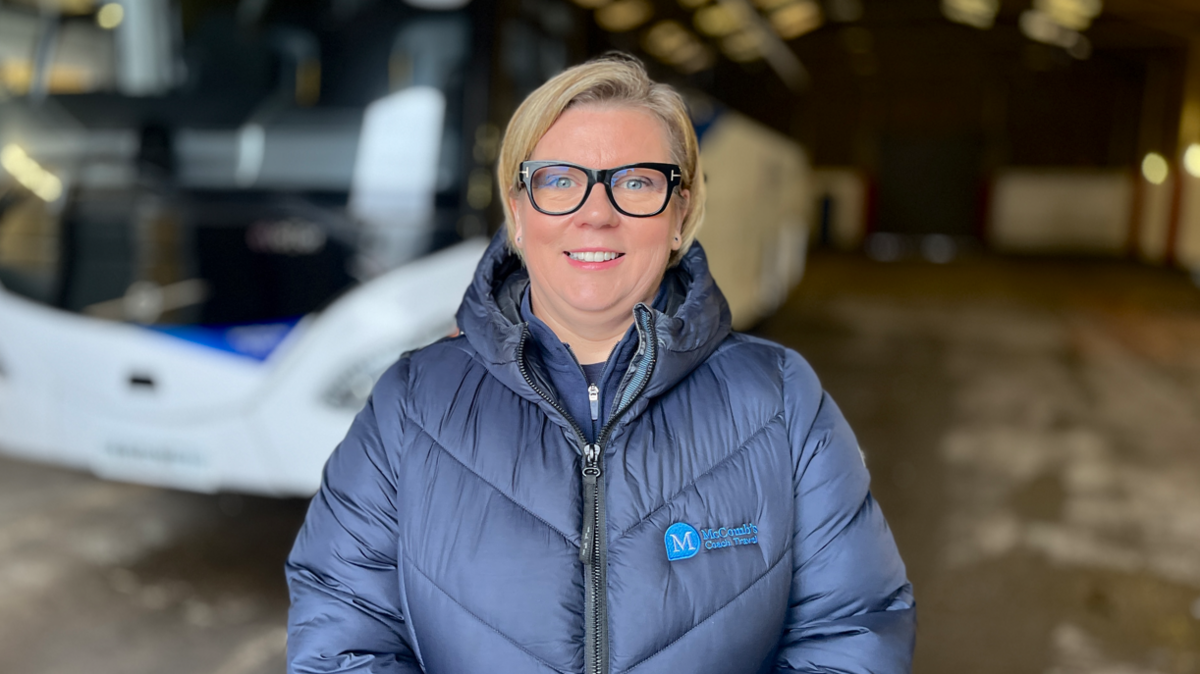
Caroline McComb said ETAs would create an "obstacle" for visitors
The Brexit agreement between the UK and EU prioritised avoiding the need for checkpoints on the Irish border.
Tour operator Caroline McComb said the "seamless and painless" cross-border journey was vital for the tourism industry in Northern Ireland.
The director of McComb's Coach Travel said ETAs would create an "obstacle" for visitors – particularly those who want to visit Northern Ireland for a short time.
She said: "If you have a group of 50 people who are hiring a coach suddenly you've £500 added to your group's cost.
"And that will make people think if I'm travelling from Dublin to Donegal, is it really worth going via the Causeway Coast and stopping at the Giant's Causeway?"
A UK government spokesperson said ETAs will deliver a "more streamlined, digital immigration system which will be quicker and more secure for the millions of people who pass through the UK border each year".
The government also said it was committed to working with the industry and others "to ensure the ETA requirement is communicated effectively and to mitigate against it being seen as a barrier to cross-border tourism in Northern Ireland".
Travellers are being advised to apply for an ETA at least three working days in advance of arrival.
But sources have indicated that many applications are decided within minutes, which would allow for the continued possibility of spontaneous cross-border trips.
Ministers and officials in the devolved government in Belfast are expected to continue lobbying London for an exemption ahead of the final phase of the ETA scheme being implemented in just under three months' time.
Worries from tourism body
Speaking on BBC Radio Foyle's Mark Paterson Show, Tourism Ireland's chief executive Alice Mansergh said industry figures are worried any "extra step" could stop visitors from crossing the border.
"If you are planning a trip to the island of Ireland you have to take this extra step to come to Northern Ireland and we would hate for that to act as a deterrent," she said.
Ideally, she added, the lobbying of the UK government could see the introduction of a seven day exemption that would allow tourists to cross the border.
"In the meantime we have got to do is work with the ETA that's in place while those conversations go on," Ms Mansergh said.
Related topics
- Published10 March 2023
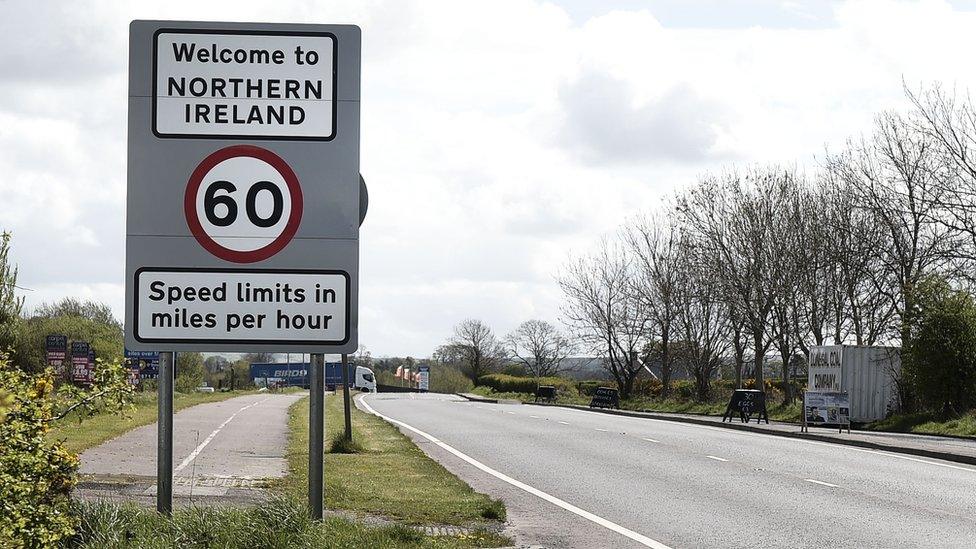
- Published20 January 2023

- Published23 May 2021
